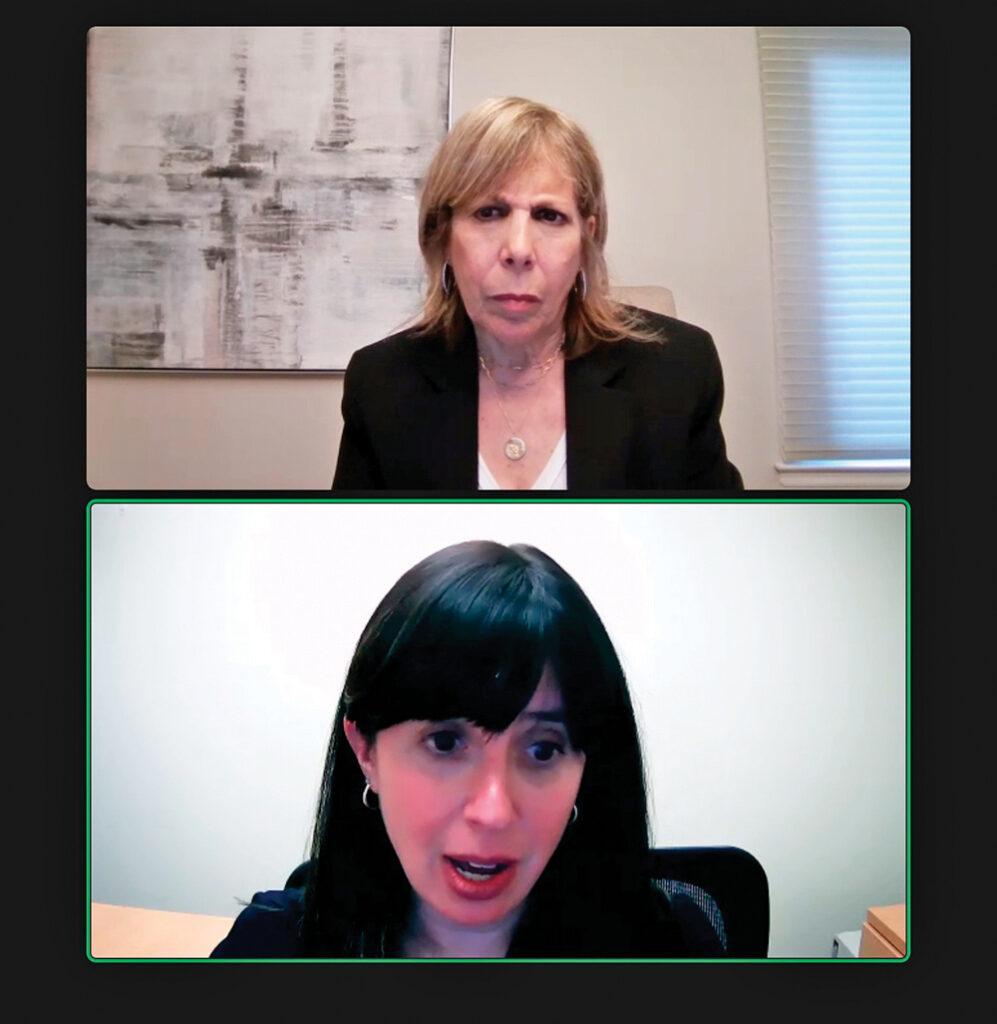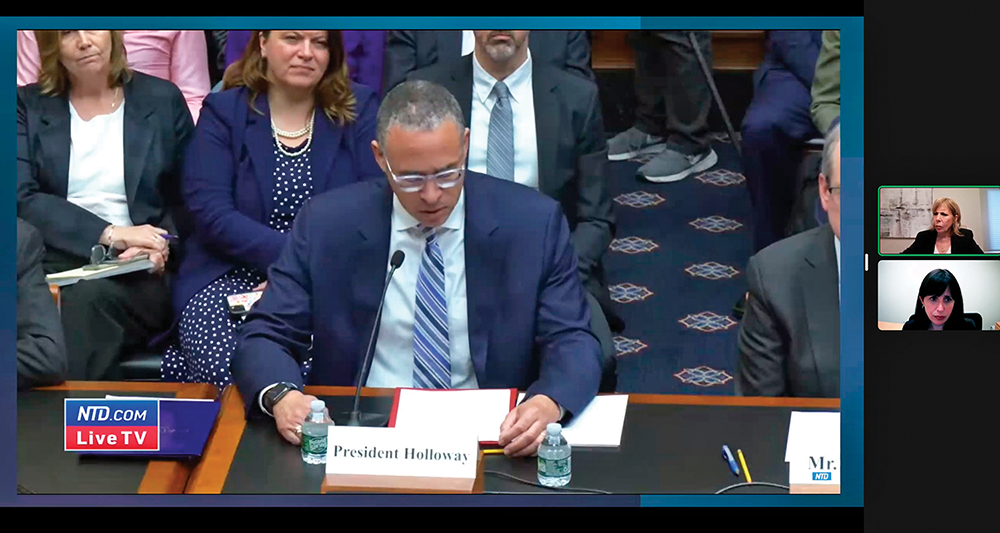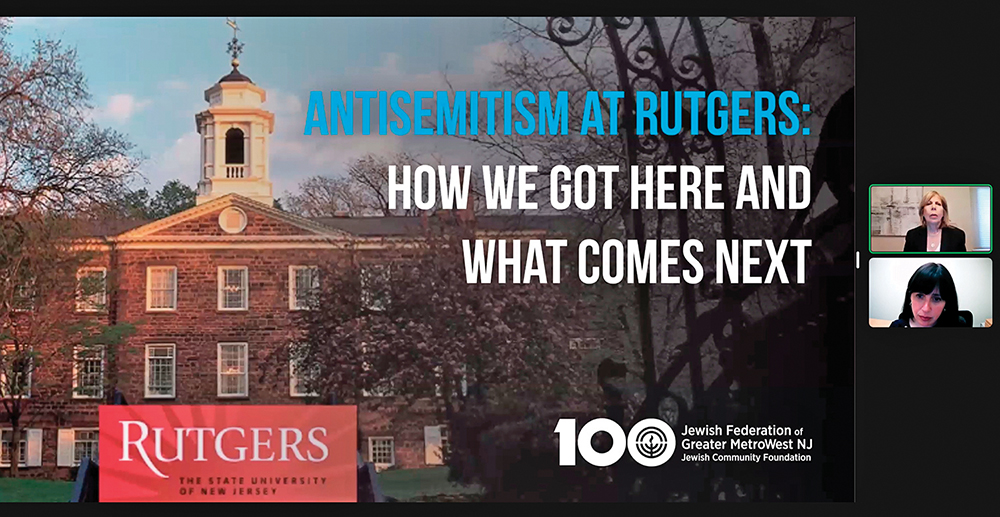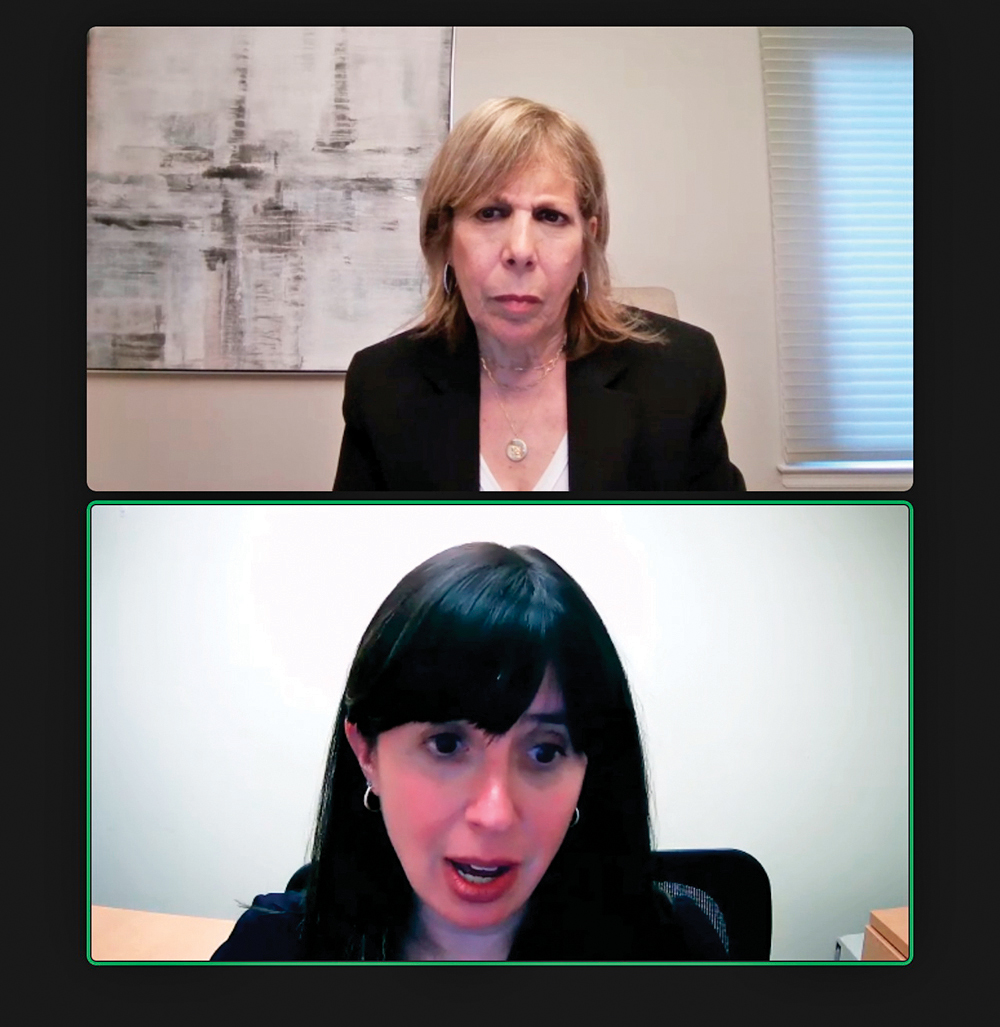
As a series of deeply distressing activities have taken place at Rutgers University over the past eight months, including hate-filled anti-Israel rallies, threats of violence, and a springtime encampment to pressure the school to divest and disconnect from Israel, the Jewish community is fortunate to have a strong team of Jewish faculty and staff on campus to speak out for them.
One of those Jewish leaders, Professor of Musicology Rebecca Cypess, recently attracted significant press attention, in part because of her decision to leave Rutgers to accept a position as dean of Yeshiva College and Stern College of Yeshiva University.
Cypess, who also served as co-chair of J-FAS (the Jewish Faculty and Staff Association at Rutgers), shared her experiences in a Zoom briefing, entitled “Antisemitism at Rutgers: How We Got Here and What Comes Next” on Sunday, June 2. The briefing was organized by the Jewish Community Relations Council of the Jewish Federation of Greater MetroWest and was co-sponsored by other Jewish Federations in New Jersey. JCRC Director Linda Scherzer served as moderator of the session.
Cypess spoke about a conversation that she’d recently had with a student in the School of Engineering, who attends classes on the Busch campus in Piscataway. The student told the professor that the anti-Israel sentiment was much less pronounced on that campus than it was on other campuses. “There are hot spots, but they are not everywhere,” Cypress said, so community leaders need to keep in mind that not all Jewish students or faculty experience the same level of hatred or harassment.
- Prompted by Scherzer, Cypess recapped the most noteworthy incidents at Rutgers since the October 7 attack in Israel:
- The online death threat against students at the AEPi fraternity;
- The use of an image of a female Jewish student on pro Palestinian propaganda;
The Jewish student at Rutgers Law School in Newark suing the university for alleged discrimination.

Cypess stated that she has heard from many different sources about other incidents that got less attention but, collectively, create a chilling climate for Jewish students, faculty and staff. These incidents included complaints of classrooms where professors vilified Israel, even if their subject matter did not relate to international politics; experiences of social isolation and ostracizing of faculty members in their departments; calls for globalized intifada at rallies; and the improper use of common spaces and other campus resources for anti-Israel agitation. She also reported about staff members who felt they were improperly disciplined for the advocacy for Jewish students or otherwise unfairly singled out.
Scherzer played a video clip of Rutgers President Jonathan Holloway’s recent testimony before a subcommittee of the U.S. Congress investigating campus antisemitism. In the video segment, Holloway stated that in dealing with the student protesters who set up the encampment on the New Brunswick campus, he had three priorities—the safety of all Rutgers community members, to uphold the policies of the university, and to foster dialogue between the protesters and the university administration. Scherzer asked for Cypess’ response to that comment.
Cypess noted that, weeks before, J-FAS suggested to the university administration that it compile and make available online an anonymized list of both antisemitic and Islamophobic incidents and the university’s response to each incident. This listing would provide transparency and foster confidence that Rutgers uniformly upholds its policies. Yet the university administration never followed through on the recommendation.
She pointed out that among the rank and file of the faculty are a few professors with a clear anti-Israel agenda, who are very vocal, who work to silence any opposition and encourage disruption. They are the source of much of the menacing anti-Israel climate on campus. As an example, she shared the story of a faculty member who stood up at a public lecture, identified himself as an Israeli professor, and said that he wanted to engage in dialogue with people who opposed Israel. The professor was shouted down and later aggressively harassed online.
As an example of a viewpoint that she thought the university should have energetically disputed but didn’t, Cypess repeated the statement of a speaker at a pro-Palestinian rally at Brower Commons: “Dying as a hero is one of the great sacrifices you can do as a Palestinian and a Muslim.”
Scherzer played another video clip of the Congressional hearing, in which Congressman Lloyd Smucker (R-Penn.) asked Holloway if he would be implementing J-FAS’s recommendations, to which Holloway replied, “We are acting on them post-haste and are committed to addressing them.”
Cypess responded to the clip, stating, “I am always hopeful,” yet she said this was the first time she heard that the university administration was working to implement J-FAS’s recommendations. She also noted that, during the hearing, Holloway committed to implementing antisemitism sensitivity training through a partnership with the ADL.

The briefing concluded with discussion of the Center for Security, Race, Rights at Rutgers Newark, led by Professor Shahar Aziz, which regularly sponsors aggressively anti-Israel programs. Holloway was asked at the Congressional hearing if he would close the center, to which he replied that he was “deeply troubled” by the center’s programs, yet he would not close it. Cypess commented that, while the university can not censor Aziz, the university can limit her influence by not providing funding for such a problematic center, whose programs run counter to the university’s values of reasoned, balanced, honest education and research.
Speaking to The Jewish Link after the event, Scherzer said that over 209 people viewed the briefing. “Rebecca Cypess has been a quiet force at Rutgers these last eight months, advocating for Jewish students and faculty amid a surge of antisemitism and anti-Israel activism. We are deeply grateful for her courage and leadership and believe her efforts to work collaboratively with Rutgers administration will lead to a more positive and productive climate on campus next year.”
Harry Glazer is the Middlesex County Editor for The Jewish Link.












